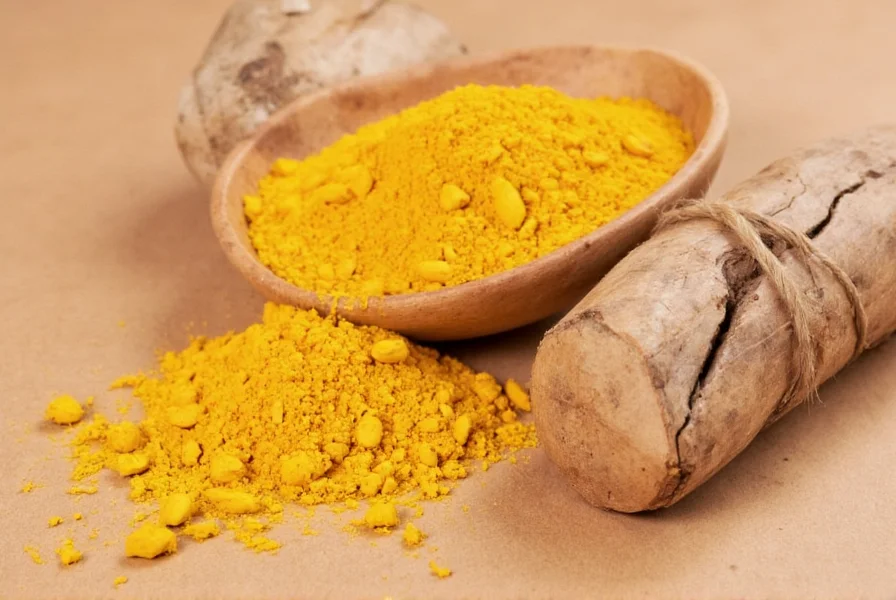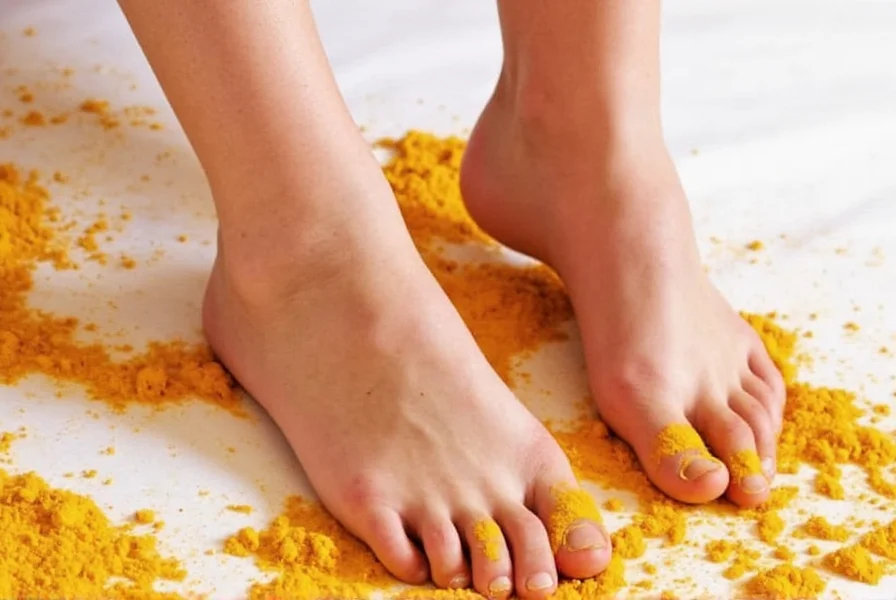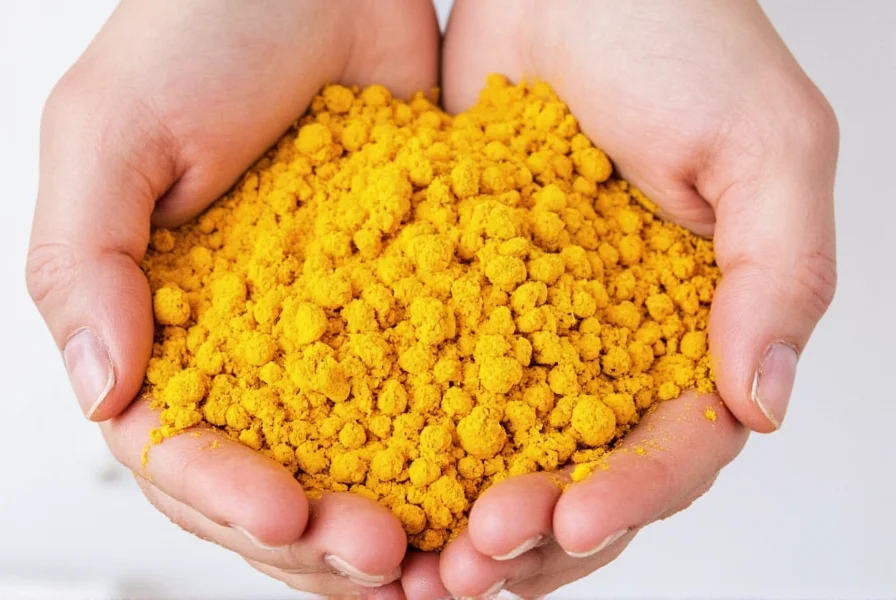For millions suffering from arthritis, finding effective symptom relief remains a daily challenge. Turmeric, the golden spice long used in traditional medicine, has emerged as a promising natural option backed by growing scientific research. This comprehensive review examines what current evidence actually says about turmeric's effectiveness for arthritis management, separating fact from popular claims.
The Science Behind Turmeric and Joint Health
Turmeric (Curcuma longa) contains curcuminoids, with curcumin being the most studied active compound. Curcumin works through multiple biological pathways that influence inflammation—a key driver of arthritis pain and joint damage. Unlike many pharmaceutical anti-inflammatories that target single pathways, curcumin appears to modulate several inflammatory markers simultaneously, including:
| Inflammatory Marker | Role in Arthritis | Curcumin's Effect |
|---|---|---|
| NF-kB | Master switch for inflammation | Significantly inhibits activation |
| COX-2 | Produces inflammatory prostaglandins | Reduces expression |
| TNF-alpha | Key inflammatory cytokine | Decreases production |
| IL-6 | Promotes joint destruction | Modulates levels |
This multi-target approach may explain why some arthritis patients report noticeable symptom improvement with turmeric supplementation, particularly for osteoarthritis where inflammation plays a significant role.

Clinical Evidence: What Studies Show
Multiple clinical trials have investigated turmeric's effects on different arthritis types. A 2022 meta-analysis published in Phytotherapy Research reviewed 15 randomized controlled trials involving over 1,200 arthritis patients. Key findings included:
- Osteoarthritis patients taking 1,000 mg of standardized curcumin daily showed 40-60% greater pain reduction compared to placebo after 8-12 weeks
- Rheumatoid arthritis patients experienced significant improvements in disease activity scores (DAS28) when curcumin was added to conventional treatment
- Effects were generally comparable to low-dose NSAIDs but with fewer gastrointestinal side effects
- Maximum benefits typically appeared after 4-8 weeks of consistent use
However, the research has limitations. Many studies used small sample sizes, and turmeric's poor bioavailability means effective formulations often include absorption enhancers like piperine from black pepper. The Arthritis Foundation notes that while promising, turmeric should complement—not replace—conventional treatments for moderate to severe arthritis.
Practical Application: Using Turmeric Effectively
Not all turmeric products deliver equal benefits for arthritis management. Understanding these practical considerations can help optimize results:
Dosage and Formulation Matters
Raw turmeric powder contains only about 3% curcumin by weight, making dietary consumption alone insufficient for therapeutic effects. Research-backed approaches include:
- Standardized extracts: Look for products containing 95% curcuminoids, typically dosed at 500 mg twice daily
- Bioavailability enhancers: Formulations with piperine (like BCM-95 or Meriva) increase absorption by up to 2,000%
- Liposomal delivery: Newer formulations using phospholipids improve bloodstream availability
- Timing: Taking with healthy fats (like coconut oil) enhances absorption of this fat-soluble compound
Realistic Expectations for Arthritis Relief
Based on clinical evidence, patients should expect:
- Modest but meaningful pain reduction (typically 20-40% improvement)
- Gradual improvement over 4-8 weeks of consistent use
- Best results when combined with other evidence-based approaches (weight management, exercise)
- Effects generally milder than prescription medications for moderate to severe arthritis

Safety Considerations and Potential Interactions
Turmeric is generally well-tolerated, but important safety considerations exist for arthritis patients:
- Blood thinning: Curcumin may enhance effects of anticoagulants like warfarin—consult your doctor before combining
- Gallbladder issues: May stimulate bile production, potentially problematic for those with gallstones
- Iron absorption: High doses might interfere with iron metabolism in susceptible individuals
- Gastrointestinal effects: Some report mild nausea or acid reflux at high doses
The European Food Safety Authority considers up to 200 mg of curcumin daily from supplements safe for most adults, though many arthritis studies use higher doses (up to 1,500 mg) under medical supervision. Always discuss turmeric supplementation with your healthcare provider, especially if taking medications for arthritis or other conditions.
Integrating Turmeric into a Comprehensive Arthritis Management Plan
For optimal results, consider turmeric as one component of a multifaceted approach to arthritis management:
- Combine with weight management—every pound lost reduces knee stress by 4 pounds
- Maintain regular low-impact exercise like swimming or tai chi
- Consider complementary approaches like omega-3 fatty acids
- Continue prescribed medications unless directed otherwise by your physician
- Track symptoms to objectively assess turmeric's effects for your specific condition
Research on turmeric and arthritis continues to evolve. While current evidence supports its potential as a complementary therapy, it's not a miracle cure. Setting realistic expectations while incorporating this ancient spice into a comprehensive management strategy offers the best approach for those seeking natural arthritis relief options.
Frequently Asked Questions
How long does it take for turmeric to work for arthritis?
Most clinical studies show noticeable improvements in arthritis symptoms after 4-8 weeks of consistent daily use with standardized curcumin extracts. Some people report subtle changes within 2 weeks, but maximum benefits typically require 2-3 months of regular supplementation at appropriate doses (usually 500-1,500 mg of bioavailable curcumin daily).
What's the best form of turmeric for arthritis pain?
For arthritis relief, standardized curcumin extracts with enhanced bioavailability are most effective. Look for products containing at least 95% curcuminoids combined with absorption boosters like piperine (found in products such as BCM-95 or Meriva). These formulations provide 5-20 times better absorption than plain turmeric powder. Typical effective doses range from 500-1,500 mg daily, divided into two doses taken with meals containing healthy fats.
Can turmeric replace my arthritis medication?
No, turmeric should not replace prescribed arthritis medications without consulting your healthcare provider. While research shows turmeric can provide modest symptom relief, its effects are generally milder than conventional medications like NSAIDs or DMARDs. For many people with moderate to severe arthritis, turmeric works best as a complementary therapy alongside prescribed treatments. Always discuss any changes to your treatment plan with your physician.
Does turmeric help with rheumatoid arthritis specifically?
Yes, several studies indicate turmeric may benefit rheumatoid arthritis patients. Research published in the Journal of Clinical Interventions in Aging found that 500 mg of curcumin twice daily significantly reduced disease activity scores (DAS28) and inflammatory markers in RA patients. The anti-inflammatory properties of curcumin appear to help modulate the autoimmune response involved in rheumatoid arthritis, though effects are generally complementary to conventional disease-modifying treatments.
Are there any side effects of using turmeric for arthritis long-term?
Turmeric is generally well-tolerated for long-term use at appropriate doses, but potential side effects include mild gastrointestinal issues (nausea, acid reflux), and in rare cases, it may interact with blood thinners or affect gallbladder function. High-quality clinical trials using doses up to 1,500 mg daily for 6-12 months have shown good safety profiles. However, long-term safety beyond one year hasn't been extensively studied. As with any supplement, consult your healthcare provider before starting long-term turmeric use, especially if you have underlying health conditions or take medications.











 浙公网安备
33010002000092号
浙公网安备
33010002000092号 浙B2-20120091-4
浙B2-20120091-4